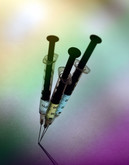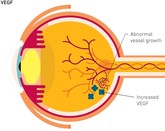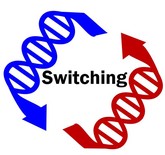Biosimilars/Research
YLB113 etanercept biosimilar autoinjector 'safe and effective’
Analysis of the YLB113 etanercept autoinjector, a biosimilar to reference etanercept, finds a high rate of injection success and supports the safe and effective use of YLB113 [1].
Progress for bevacizumab copy biologicals from Henlius and Innovent
Shanghai Henlius Biotech, Inc (Henlius) reports progress in clinical trials of a bevacizumab copy biological for age-related macular degeneration and colorectal cancer, while Innovent Biologics reports positive findings from a trial of their bevacizumab copy biological in hepatocellular carcinoma.
Data support the interchangeability of EU biosimilars
The first study to comprehensively analyse post-marketing surveillance data for biosimilar monoclonal antibodies demonstrates comparable efficacy, safety and immunogenicity with the originator products [1].
Patent litigation insights on barriers to US biosimilar market growth
High prices of biological drugs have placed substantial strain on the US healthcare system. To help address this problem, Congress passed the Biologics Price Competition and Innovation Act of 2009 (BPCI Act) as part of the Affordable Care Act, which created an abbreviated approval pathway for biosimilars – versions of ‘originator’ biological drugs made by different manufacturers. To resolve disputes over whether a biosimilar manufacturer would infringe patents on the originator biological by entering the market, the BPCI Act included a multi-step litigation process, which starts when the biosimilar manufacturer submits its abbreviated biological license application to the US Food and Drug Administration (FDA). However, a decade after its passage, the BPCI Act has spurred only limited competition [1].
Research, development and public production of pharmaceuticals in Argentina
Under the current research and development model, the pharmaceutical industry has switched its focus towards the therapeutic areas that offer the greatest commercial benefit, which are often not aligned with public health needs. Consequently, it has ceased to be the great innovative industry that it had been during the last century.
Delayed biosimilars market entry costs US billions
Delayed adalimumab biosimilar entry to the US market is estimated to have cost Medicare over US$2.19 billion between 2016 and 2019, a study published in Clinical Pharmacology and Therapeutics has revealed.
Demand for similar biotherapeutic products in Latin America
Development of biologicals has experienced steady growth over the past three decades. Expiration of patents on many originator biologicals, such as insulin, human growth hormone and erythropoietin, has opened the door for the development of biosimilars. The high cost of biologicals, however, has limited their accessibility, particularly in developing countries. Biosimilars offer much-needed affordability and hence improved accessibility. Global health agencies, such as the World Health Organization, are engaged in developing a prequalification program in order to help countries that do not have strong regulatory systems [1].
Competition from biosimilars drives price reductions for biologicals in France
The US has experienced a policy debate as to whether competition from biosimilars is the best strategy for achieving price reductions for biologicals or, rather, whether direct price regulation after loss of patent exclusivity would be more effective. In order to investigate this issue, authors from the US and France combined quantitative and case study methods to examine in detail the interaction between market and administrative mechanisms to reduce biologicals’ prices in France. In their article they present comprehensive data on market shares and prices for three major biologicals and their 11 competing biosimilars between 2004 and 2020 [1].
Positive trial results for bevacizumab copies from Betta Pharmaceuticals and Biocad
The bevacizumab copy biological MIL60 (Betta Pharmaceuticals Ltd) and non-originator biological BCD-021 (Biocad) have demonstrated clinical equivalence for the treatment of non-squamous non-small cell lung cancer (NSCLC) in phase III trials.
Candidate trastuzumab biosimilar AryoTrust
Biologicals are one of the interesting and effective treatment options which can save the lives of many patients, however, their high cost and restricted access for some patients remains a challenge. The emergence of biosimilars, with their similar efficacy and safety profiles, could be a solution for this hurdle. According to the European Medicines Agency (EMA) guidance entitled ‘Biosimilars in the EU – information guide for healthcare professionals’, a biosimilar is ‘a biological medicine highly similar to another biological medicine already approved in the EU’ [1]. Biosimilars are required to have the same standards of pharmaceutical quality, safety and efficacy as for originator biologicals in order to obtain marketing authorization. Although, according to the EMA guidance ‘approval of biosimilars builds on existing scientific knowledge on safety and efficacy of the reference medicine gained during its clinical use, so fewer clinical data are needed’ [2].












